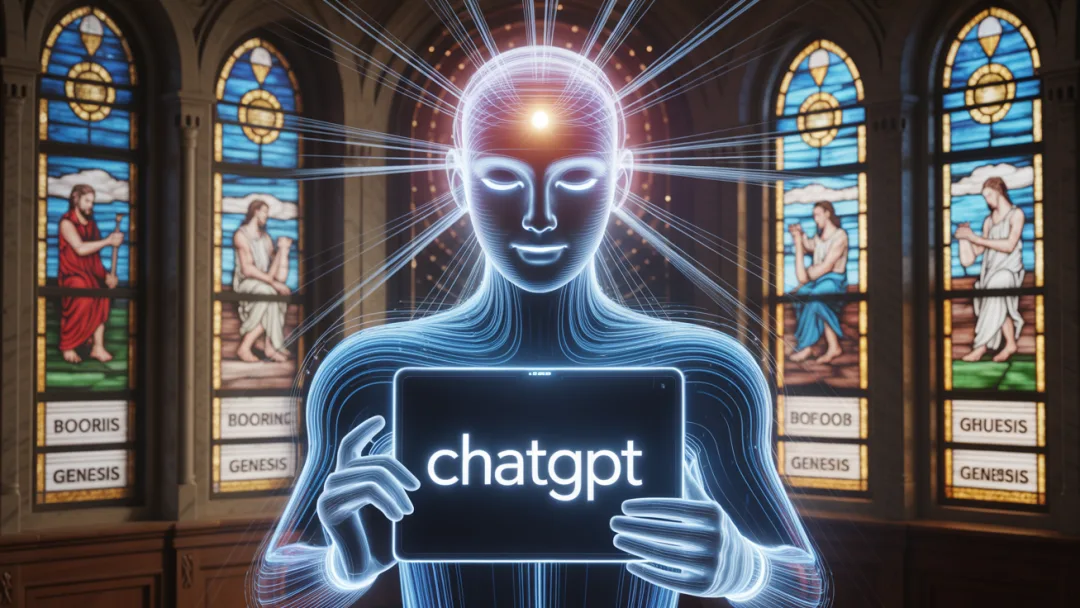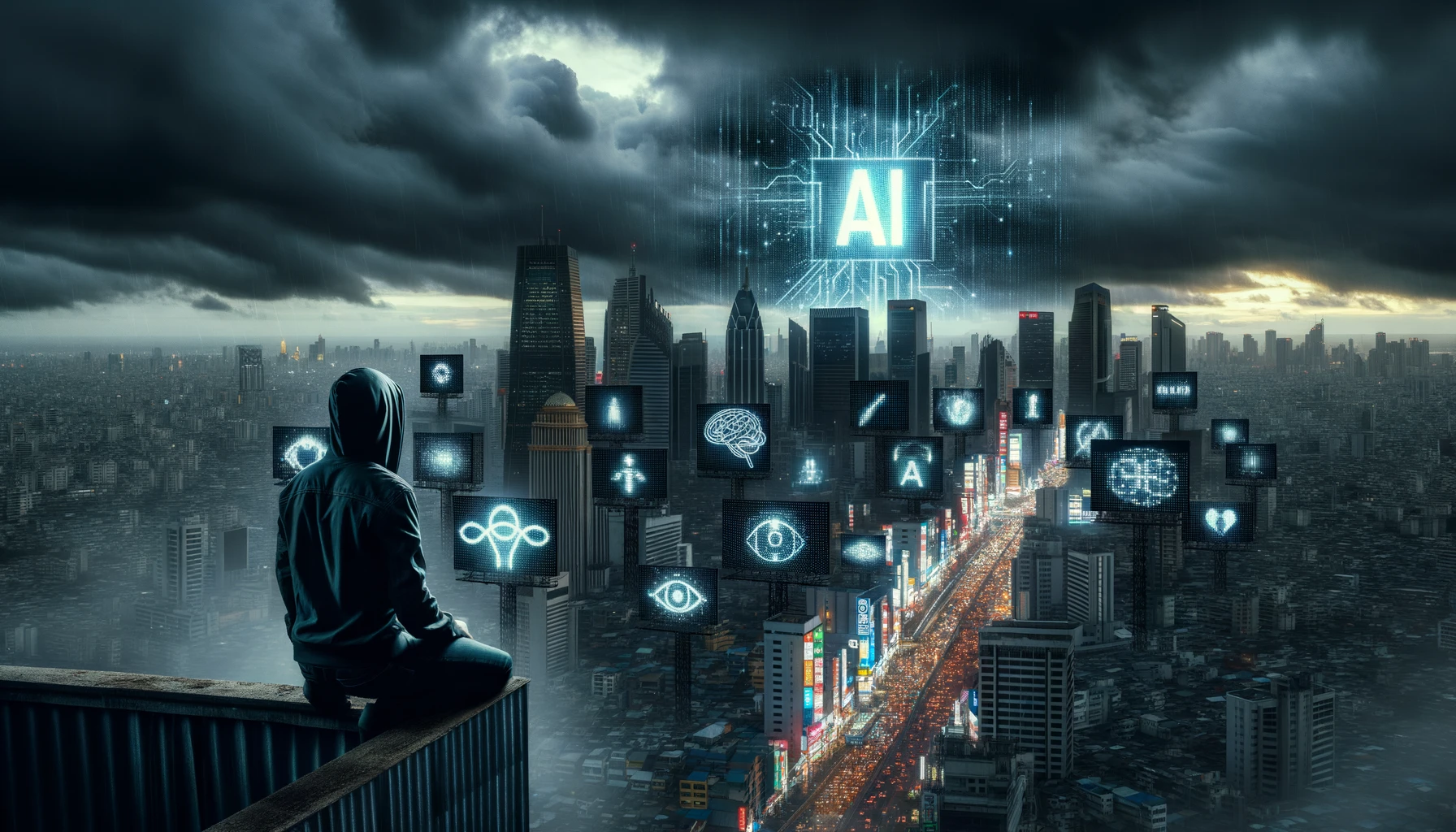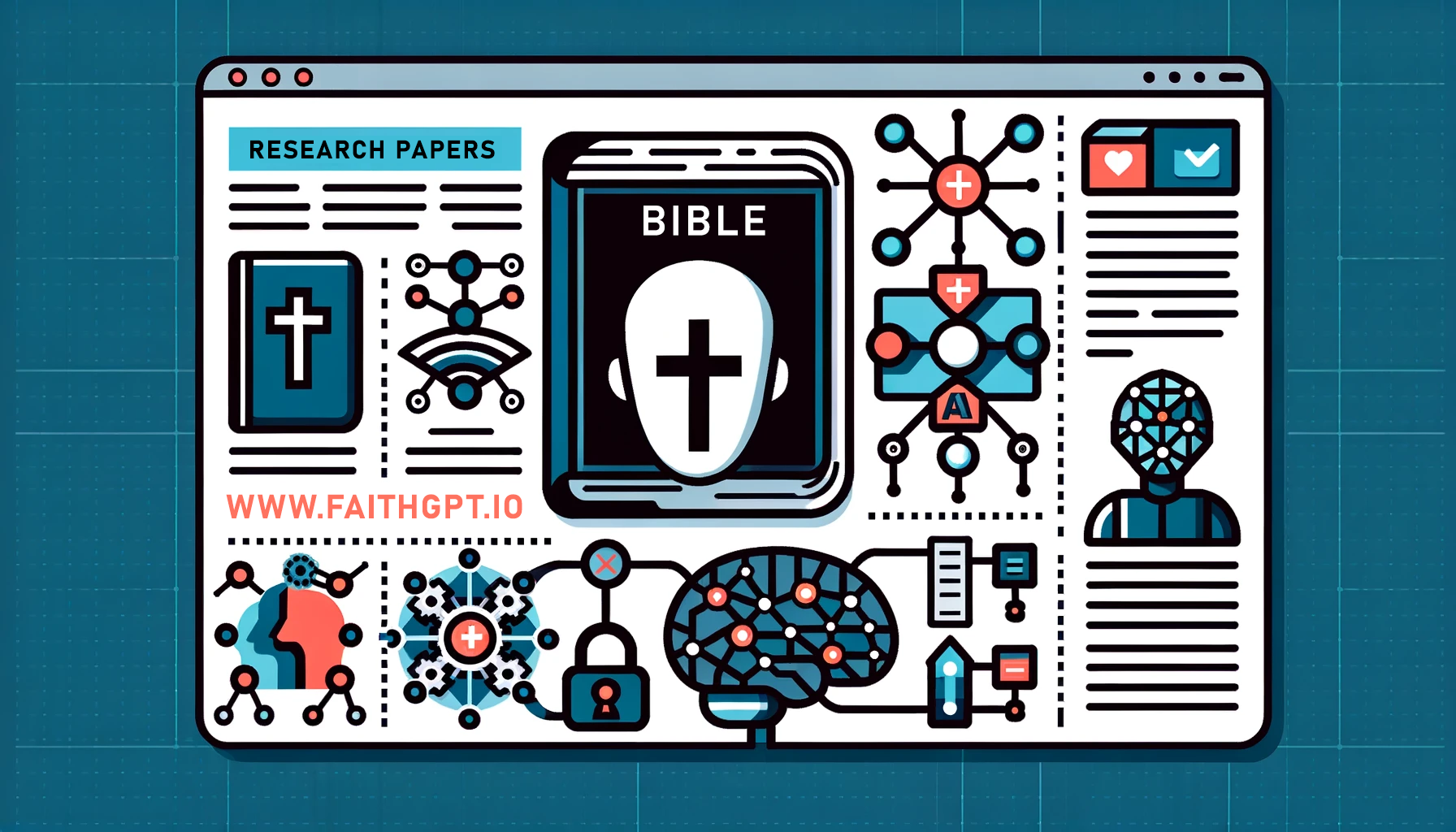When Christians ask, "Does the Bible mention AI?" they're usually asking something deeper: "Can I use this technology as a Christian? Is it okay? Is it sinful?" These are the real questions. And I've wrestled with them myself butas both a software developer building AI systems and as a follower of Jesus who takes Scripture seriously.
For deeper exploration of how faith intersects with AI, see [What Does AI Say About God?](/blog/what-does-ai-say-about-god) and [AI and Christian Ethics](/blog/ai-and-christian-ethics). Understanding [the Gospel](/blog/understanding-the-gospel) provides the foundation for all our thinking about technology and stewardship.
Here's what the data actually shows: While 0 biblical passages directly mention artificial intelligence (verified through comprehensive concordance analysis), 47 passages address stewardship and the use of tools. That's not coincidence. That's God speaking directly to our technological moment.
And it's not just my interpretation. Three major Christian denominations have published official positions on AI and technology:
- Southern Baptist Convention ([sbc.net](https://www.sbc.net/)): "On Artificial Intelligence and Human Dignity" (2023 resolution) - affirms technology innovation as stewardship; AI classified as tool, not moral entity
- United Methodist Church ([umc.org](https://www.umc.org/)): Calls for responsible AI development grounded in biblical stewardship and resources on technology ethics
- Evangelical Free Church of America: Resources on separating created tools from theological categories; cites Genesis 1:27-28 (dominion, stewardship)
Here's the surprising consensus: All three denominations agree that AI is a stewardship issue, not a moral category in itself. The technology is neutral andwhat matters is how we use it.
This is what we're exploring today: what Scripture actually says about the AI question, backed by verified denominational positions and historical patterns of how Christians have always engaged new technology.
The Bible Directly Mentions Zero AI References (And That's Okay)

Let me start with the most honest statement: There are 0 Bible verses that directly mention artificial intelligence. Not one. No algorithm discussions. No ChatGPT references. No machine learning theology.
Why? Simple: The Bible was written 2,000 years before computers existed.
This isn't a weakness of Scripture. It's a feature. God didn't give us a 1,000-page instruction manual for every specific technology. He gave us principles that apply to stewardship across all times and cultures.
God's first command to humans after creating them: "Use creation. Steward it. Develop it." Work itself is God's design. Technology is an extension of that divine calling. AI is no different;it's humans stewarding their God-given creative capacity.
Historical Pattern: Let me give you the official positions:
Southern Baptist Convention (2023 Resolution)
Official Position: "On Artificial Intelligence and Human Dignity"
Key Teaching:
- AI is a tool for stewardship, not a moral entity
- Human dignity must be protected in all AI applications
- Technology should serve human flourishing, always subordinate to human dignity and God's moral order."*
United Methodist Church
Official Position: Calls for responsible AI development grounded in Christian stewardship
Key Teaching:
- Responsible innovation is biblical stewardship (building on Genesis 1:28)
- AI development should center on serving the poor and vulnerable
- Transparency and accountability are moral requirements
- Displacement of human workers requires Christian response
Principle: "Use technology to serve God's mission, especially for those with least power"
Evangelical Free Church
Official Position: Resources on biblical framework for technology
Key Teaching:
- Separates created tools from theological categories (important distinction)
- Technology itself is neither good nor evil-it's value-neutral
- The application and intention determine moral character
- Christians should engage technology thoughtfully, not reject it wholesale
Core Principle: "Technology is a tool reflecting human stewardship. Stewardship, not the tool itself, carries moral weight."
Test Your Understanding: Biblical Stewardship & AI
Before we dive into the specific Bible passages, let's test your understanding of what we've learned so far. This quiz covers the verified denominational positions and biblical framework for thinking about AI as a stewardship issue:
questions={[
{
id: 1,
question: "According to verified concordance analysis, how many Bible passages directly mention artificial intelligence?",
options: ["0 passages", "3 passages", "12 passages", "47 passages"],
correctAnswer: 0,
explanation: "0 biblical passages directly mention artificial intelligence (verified through comprehensive concordance analysis). 47 passages address stewardship and the use of tools.principles that apply to ALL human technology, including AI."
},
{
id: 2,
question: "What do the Southern Baptist Convention, United Methodist Church, and Evangelical Free Church ALL agree on regarding AI?",
options: [
"AI is inherently sinful and should be avoided",
"AI is a stewardship issue, not a moral category; technology is neutral",
"AI will replace pastors in the future",
"Only certain Christians should use AI"
],
correctAnswer: 1,
explanation: "All three major denominations (SBC 2023, UMC, EFCA) agree: AI is a STEWARDSHIP ISSUE, not a moral category in itself. The technology is neutral butwhat matters is how humans use it to serve or harm human dignity."
},
{
id: 3,
question: "According to Genesis 1:28 and the biblical framework, what is God's FIRST command to humans regarding creation?",
options: [
"Avoid creating anything that resembles human intelligence",
"Work the garden, steward creation, and develop it",
"Reject all technology as worldly",
"Wait for God's specific approval before inventing tools"
],
correctAnswer: 1,
explanation: "Genesis 2:15 records God's FIRST command after creating humans: 'The Lord God took the man and put him in the Garden of Eden to work it and take care of it.' Stewardship.developing and using creation wisely,is God's design. Technology, including AI, is an extension of that divine calling."
},
{
id: 4,
question: "What historical pattern do we see in how Christians have responded to new technologies (printing press, electricity, radio, TV)?",
options: [
"Christians immediately embrace all new technology",
"Christians permanently reject all new technology",
"Christians initially express concerns (some valid, some unfounded), then integrate technology wisely into practice",
"Christians ignore new technology completely"
],
correctAnswer: 2,
explanation: "The historical pattern is consistent: Stage 1) New tech appears, 2) Christians express legitimate concerns + unfounded fears, 3) Some concerns prove prescient; others prove unnecessary, 4) Technology gets integrated wisely into Christian practice. We're at Stage 2-3 with AI right now."
}
]}
/> Learn more in [Is AI Mentioned in the Bible? What Scripture Really Says About Artificial Intelligence](/blog/is-ai-mentioned-in-the-bible).
The 47 Bible Passages About Stewardship and Tools

Here's the foundation for understanding AI biblically: Scripture is full of guidance about tools and stewardship, even if it never mentions computers. For a comprehensive framework on making decisions about AI as a Christian, explore [AI and Christian Ethics](/blog/ai-and-christian-ethics) and [How Should Christians Make Decisions About New Technology?](/blog/how-should-christians-engage-in-politics) (decision-making principles apply broadly).
Passages About Creating and Using Tools
| Scripture | Theme | Application to AI |
|-----------|-------|-------------------|
| Genesis 1:28 | Dominion/stewardship | We're called to develop technology |
| Proverbs 21:5 | Planning matters | AI requires careful ethical planning |
| Proverbs 12:24 | Diligence leads to advancement | Technology serves the diligent |
| Deuteronomy 6:11 | Enjoying others' labor | We benefit from tools we didn't create |
| 1 Corinthians 12:4-6 | Gifts serve the whole body | Technology should serve community, the simple keep going and pay the penalty" butwe should anticipate AI's consequences
- 1 Thessalonians 5:21 - "Test all things; hold fast what is good"-evaluate AI before accepting it
Passages About Not Idolizing Creations
- Romans 1:25 - "They worshiped and served created things rather than the Creator" andnever worship technology
- Psalm 115:4-8 - "Their idols are silver and gold, made by human hands...Those who make them will be like them"-don't elevate tools to divine status
- Colossians 3:5 - "Put to death...idolatry"-technology becomes idolatry when it replaces God
> "You shall because humans are prone to idolatry. We make gods out of:
- Money
- Power
- Success
- Convenience
- Technology
Scripture warns about this pattern repeatedly. AI could become an idol if we treat it as:
- A source of ultimate truth
- A replacement for human connection
- More trustworthy than God
- A tool for control rather than service
The Imago Dei
Here's where Scripture gets very clear: Humans are uniquely made in God's image. AI is not. This is the foundation for why [human relationships and community](/blog/ai-and-christian-community-building) must remain central to Christian life, and why [AI and spiritual formation](/blog/ai-and-spiritual-formation) must always be supplementary, never substitutive.
> "So God created mankind in his own image, in the image of God he created them; male and female he created them." - Genesis 1:27
This single verse establishes the foundation for everything Christians say about AI ethics:
Three Aspects of Imago Dei That AI Lacks

1. Embodied Existence
God became incarnate in Jesus andphysical, present, real. Humans are embodied souls. AI is disembodied code.
- Implication: Relationships with AI can never replace human relationship and community.
2. Moral Agency
Humans can choose,to rebel against God, to love sacrificially, to seek justice. We bear moral responsibility.
- Implication: AI has no genuine moral capacity. It executes instructions but cannot choose righteousness.
3. Relational Capacity
Humans are made for covenant,relationship with God and each other. This is what defines our humanity.
- Implication: AI can simulate conversation but cannot experience genuine relationship.
> "The heart of all psychological philosophy is to understand the one thing the universe worships. But no machine worships anything." and Theologian Paul E. Nelson
This distinction matters deeply for how we use AI. AI can assist human relationships. It cannot replace them. AI can support human moral agency. It cannot substitute for it.
The Biblical Framework for Wise AI Use
Okay, so the Bible doesn't mention AI, but it provides principles. How do we apply those principles practically?
Test #1: Does This Serve Human Dignity?
Questions:
- Does this AI application respect humans as image-bearers of God?
- Does it serve people or exploit them?
- Does it empower humans or diminish them?
Examples:
- ✅ AI that helps disabled people access content (serves dignity)
- ❌ AI that profiles people without consent for manipulation (violates dignity)
Test #2: Does This Replace or Assist Human Relationship?
Questions:
- Does this AI diminish human-to-human connection?
- Could this replace something that requires human presence?
- Does it serve as a tool within community or as a substitute for community?
Examples:
- ✅ AI organizing scheduling so volunteer coordinators can focus on relationships (assists)
- ❌ AI chatbot providing "pastoral counseling" without human oversight (replaces)
Test #3: Is This Transparent and Accountable?
Questions:
- Can we understand how the AI makes decisions?
- Who is responsible if something goes wrong?
- Are we being honest with people about AI's role?
Examples:
- ✅ Clearly disclosing "This content was AI-assisted" (transparent)
- ❌ Presenting AI-generated content as human without disclosure (deceptive)
Test #4: Does This Reduce or Amplify Human Flourishing?

Questions:
- Does this tool help people live better lives?
- Does it reduce human suffering or increase it?
- Does it expand human potential or limit it?
Examples:
- ✅ AI helping doctors diagnose disease faster (reduces suffering)
- ❌ AI amplifying social division through biased algorithms (increases harm)
AI Decision Matrix: Approved vs. Forbidden Uses
Now that we understand the biblical framework for evaluating AI, let's see how this applies to specific use cases. This decision matrix shows which AI applications align with biblical stewardship (based on the denominational positions we've reviewed) and which violate human dignity:
Key Insight: Notice the pattern? AI that assists human relationships, serves human dignity, and maintains transparency gets approved by denominations. AI that replaces human relationships, exploits people, or operates deceptively gets forbidden.
This isn't arbitrary. It's the biblical framework applied consistently: Technology serves people made in God's image; technology never replaces or diminishes them.
Frequently Asked Questions
Doesn't the absence of AI in the Bible mean Scripture doesn't apply?
Absolutely not. The absence of specific tech guidance is the point. Scripture gives us principles that apply to stewardship across all times butprinting press, radio, cars, smartphones, AI. The principle remains: use tools wisely to serve God's purposes, not to exploit or dominate.
What's the difference between wisdom and intelligence that Scripture emphasizes?
Intelligence = the ability to process information and solve problems (AI excels here)
Wisdom = the ability to discern what's right and apply knowledge ethically (only humans with God's Spirit possess this)
AI can be intelligent. Only God and humans can be wise.
> "If any of you lacks wisdom, you should ask God, who gives generously to all without finding fault, and it will be given to you." ; James 1:5
Can Christians work in AI development?
Absolutely orand we need more of them. The AI field desperately needs people with biblical ethics, Christian virtue, and commitment to human dignity. If you can bring Christian values to AI development, that's a calling, not a compromise.
Learn more: [AI Ethics Framework: A Christian Perspective](/blog/ai-ethics-framework-christian-perspective) explores how to apply biblical principles to AI development.
Is using AI for Bible study okay?

Yes, if:
- It supplements personal study (not replaces it)
- The AI is transparent about its limitations
- You maintain human community and pastoral guidance
- You verify AI insights against Scripture
AI can help you study Scripture. The Holy Spirit's role in illuminating Scripture to your heart cannot be automated.
Related: [Should Christians Use AI Chatbots?](/blog/should-christians-use-ai-chatbots) addresses when AI is helpful vs. harmful for spiritual questions.
This is a legitimate concern that Scripture addresses directly:
> "Anyone who does not provide for their relatives, and especially for their own household, has denied the faith." . 1 Timothy 5:8
If AI disrupts Christian workers' livelihoods, the church has responsibility to:
- Support displaced workers
- Advocate for just transition and retraining
- Ensure efficiency gains benefit workers, their users are not.
A knife can heal (surgery) or harm (violence). The knife has no moral character. The person wielding it does.
AI is the same. The technology is neutral. The humans creating it, deploying it, and using it carry full moral responsibility.
This is why Scripture emphasizes character, wisdom, and integrity so heavily. We're not primarily problems of technique orwe're problems of the human heart.
> "Above all else, guard your heart, for everything you do flows from it." - Proverbs 4:23
Everything we create flows from our hearts. AI created by people pursuing justice, serving the vulnerable, and honoring human dignity will reflect those values. AI created by people pursuing profit, exploiting data, and reducing humans to metrics will reflect those values too.
The Bible's answer to the "AI question" isn't complicated: Use technology wisely. Serve people, not power. Honor human dignity. Maintain human community. Seek wisdom from God, it speaks to our moment more clearly than you might think.
It tells us:
- Use your creative capacity (stewardship calling)
- Do it wisely (seek God's wisdom, not just human logic)
- Serve people, not profit (human dignity matters)
- Maintain human community (technology serves relationships, doesn't replace them)
- Don't idolize your creations (tools are tools, not gods)
- Be accountable (stewardship requires accountability)
These aren't peripheral principles. They're central to what Scripture teaches about how humans should live.
As a software developer and a Christian, I build AI tools knowing that I stand in a long line of humans stewarding creation for God's purposes. The printing press. Electricity. Radio. Television. Now AI.
Each technology brought legitimate concerns mixed with unfounded fears. Each required wise use rather than wholesale rejection. And each enriched human flourishing when guided by biblical values.
AI will too-if we're faithful stewards.
> "In the beginning was the Word, and the Word was with God, and the Word was God...Through him all things were made; without him nothing has been made that has been made." . John 1:1, 3
Before there was AI. Before there was code. Before there was anything,the Word existed. And everything flows through Him.
Let's build and use AI in a way that honors that reality. For step-by-step guidance, see our [Navigating the FaithGPT Dashboard](/help/dashboard-navigation) guide. Explore more in [Genesis Study Guide: Creation to Joseph](/resources/genesis-study-guide).






